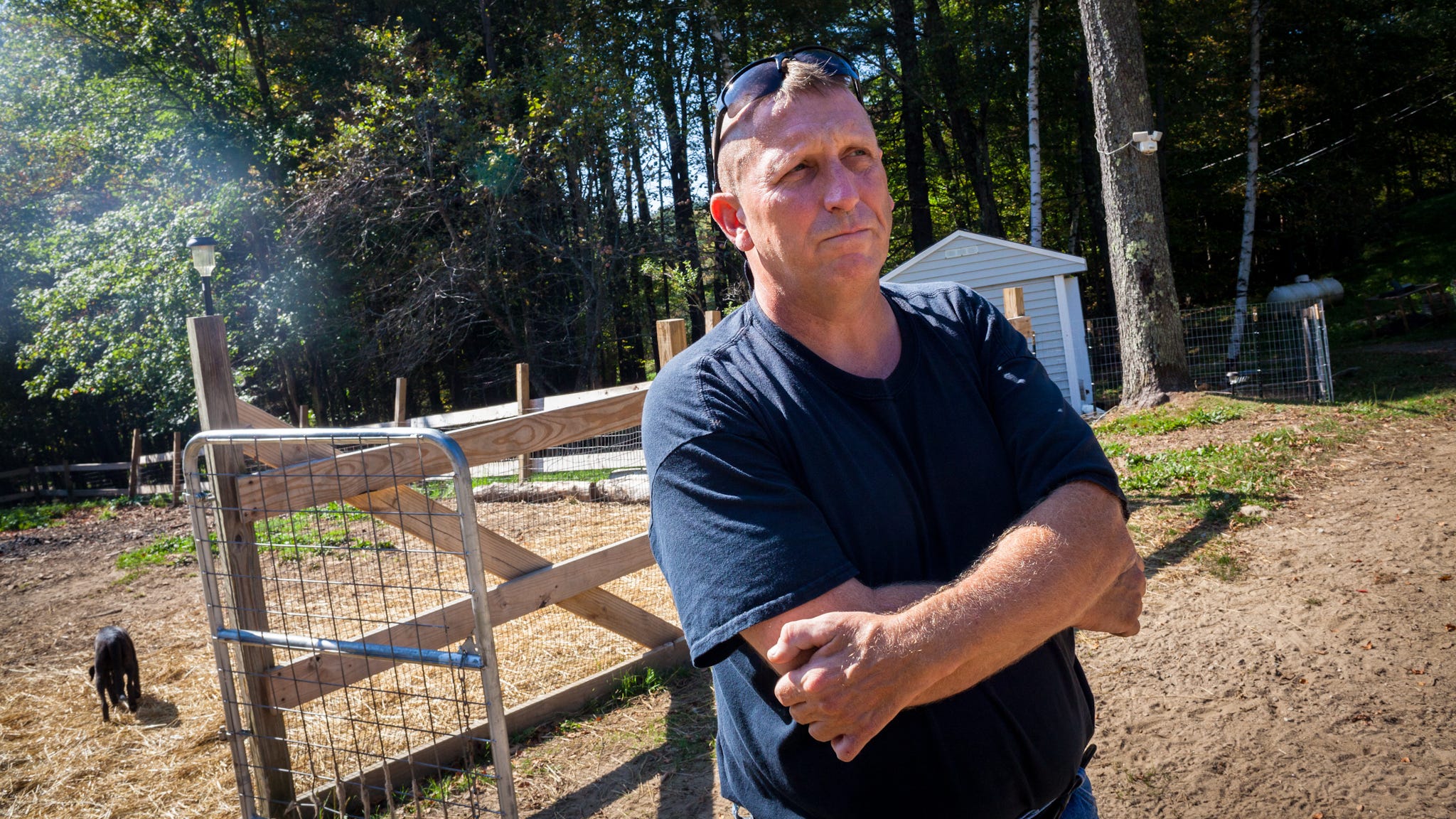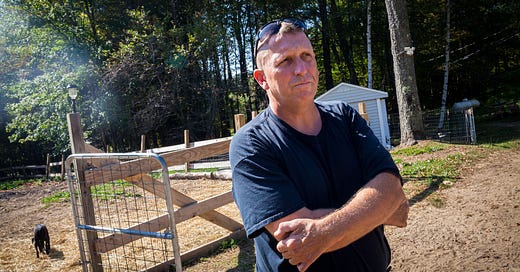The Veteran Saving His Comrades from Addiction By Embracing Their "Dysfunctional" Side
Once a homeless addict, Army Ranger Michael Rivers is using a million-person Facebook group and a rural farm to change the way we think about vets.

Photos by Elizabeth Frantz
The Dysfunctional Veteran podcast isn’t for everyone, but then again, it doesn’t try to be. The podcast is full of complaints about “POGs,” or Persons Other than Grunts – that’s non-trigger pullers, ROTC cadets, and various other forms of “pussies” and non-hackers. Wednesday nights are for “disgruntled discussions,” and they speak with uninhibited, crass vulgarity of the military. “Fucking” and “Gay” are favored descriptors.
To a civilian, the talk is borderline incomprehensible. It’s heavy on jargon and the minutiae of life in the Army. But for a veteran, it’s easy to listen and briefly imagine that you’re back in uniform, bullshitting with your buddies out by the smoke pit. That’s true for everything else at Dysfunctional Veterans. There are podcasts, a Facebook page with over a million followers, and message boards all devoted to bringing veterans together to hang out and talk.
The website doesn’t hesitate to play up the “Dysfunctional” aspect of the organiz…
Keep reading with a 7-day free trial
Subscribe to Narratively to keep reading this post and get 7 days of free access to the full post archives.



